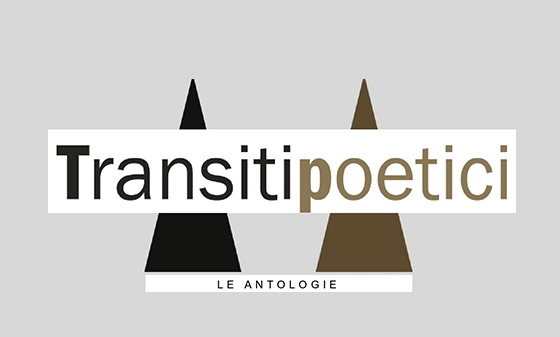
da Monica Guerra | Feb 6, 2025 | antologie
Transiti poetici – VOLUME XV
Le Antologie Poetiche Virtuali sono curate da Giuseppe Vetromile. Ogni Volume comprende 10 Autori, liberamente selezionati ed invitati dal curatore. Sono previsti volumi dedicati a particolari ambiti poetici (poesia emergente, poesia dialettale, ecc.). Le copertine sono elaborate e realizzate da Ksenja Laginja.
Clicca qui per saperne di più
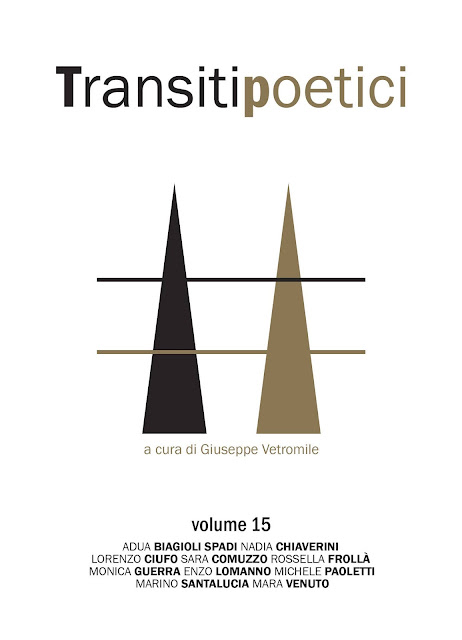
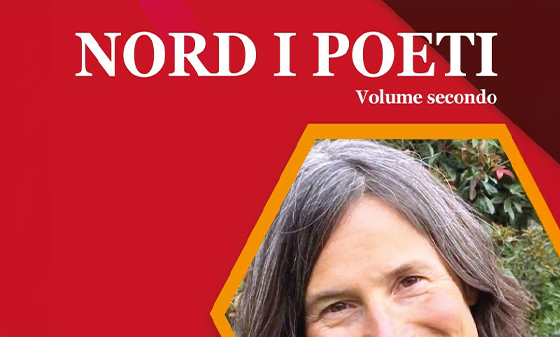
da Monica Guerra | Feb 6, 2025 | antologie
NORD I POETI. Volume secondo. Paola Loreto: la poiesis dell’attenzione
I testi di Monica Guerra, all’interno di questa antologia contemporanea, sono introdotti da una nota a cura di Nadia Scappini.
Descrizione:
La parte monografica di questo secondo volume di Nord I Poeti è dedicata alla poetessa lombarda Paola Loreto. Gli interventi critici dedicati alla sua poesia convergono tutti quanti sul suo approfondimento del fare poetico e sul suo rapporto con la montagna che diventa una «grammatica del vivere e dello scrivere». Nell’ opera poetica della Loreto avvertiamo il battito del suo sentire. Complessità e innocenza, gioia e dolore, assonanze di bellezza, grazie improvvise, vivono nello stesso battito.
«La poesia – sottolinea la Loreto – va agli altri. E idealmente al noi stessi che c’è dentro agli altri. Come i bambini. Quando è fuori di noi non è più nostra e allora comincia a svelarsi. A rivelarsi. A crescere i suoi lineamenti, a manifestare il suo carattere, la sua natura. A parlare. Che sciocca illusione – e malsana – aver pensato di avere deciso, noi, cosa avrebbe detto.» Nella seconda parte del volume, dedicato ai poeti scomparsi del Nord Italia, si ricordano Bino Rebellato (Veneto), Giovanna Bemporad e Giuseppe Raimondi (Emilia Romagna), Gilberto Finzi (Lombardia), Beno Fignon (Friuli Venezia Giulia).
Tra le voci contemporanee, i poeti Luca Pizzolitto (Piemonte), Enzo Santese (Friuli Venezia Giulia), Lucia Guidorizzi e Carlo Ragliani (Veneto), Monica Guerra (Emilia Romagna).
Hanno collaborato a questo secondo volume: Marco Bellini, Valentina Colonna, Alessandra Corbetta, Milo De Angelis, Mario Famularo, Silvia Favaretto, Enrico Grandesso, Lucia Guidorizzi, Elisabetta Motta, Fabio Pusterla, Stefano Raimondi, Pietro Romano, Nadia Scappini, Antonio Spagnuolo, Silvano Trevisani, Gabrio Vitali.
Clicca qui per acquistarlo

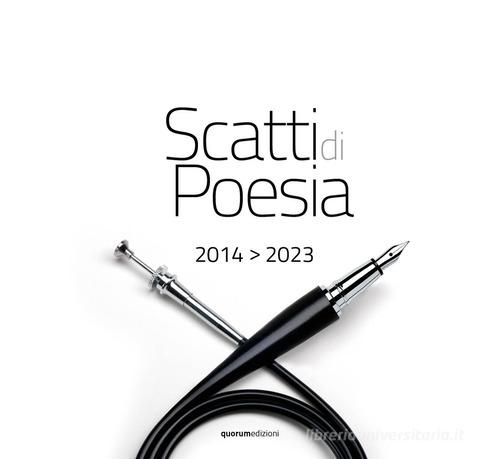
da Monica Guerra | Lug 5, 2024 | antologie, pubblicazioni
FILLIDE, DI GIUSEPPE DI PALMA
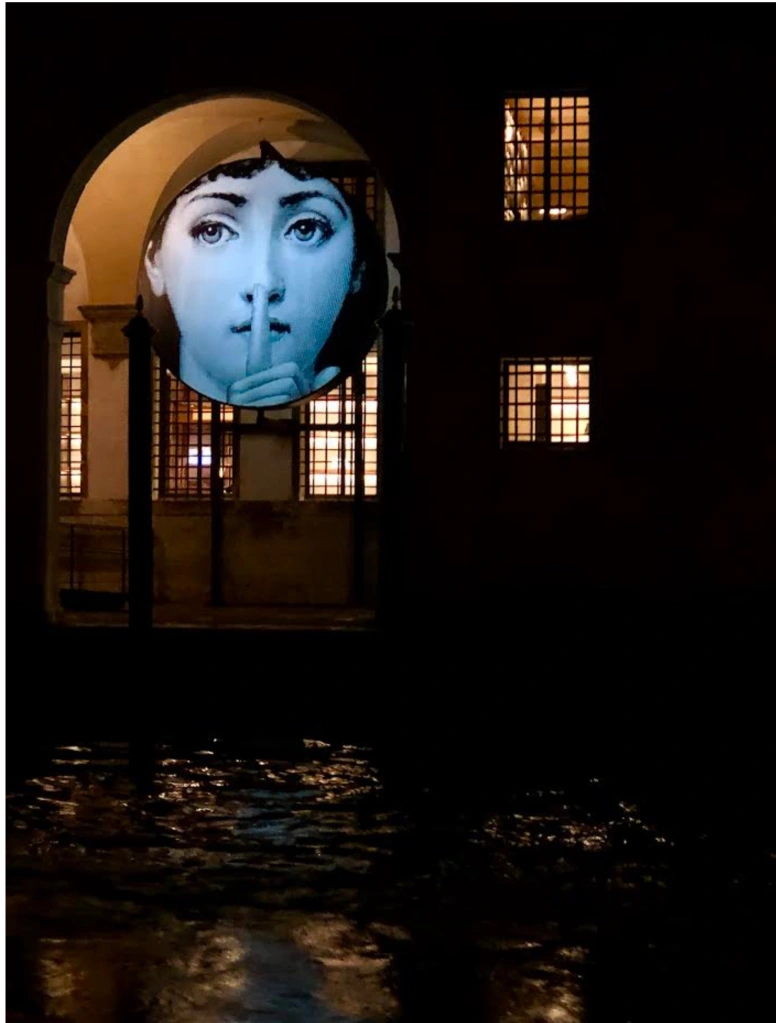
[ non è argilla bianca il fango] di MONICA GUERRA
non è argilla bianca il fango
la moria di pesci sotto gli alberi
interrotti è sangue è melma
nello sguardo sopra i ponti
tra i muri d’acqua non resta
che rimpastare il segreto
di una bellezza frantumata
dagli arti divelti il centro esatto
di una FILLIDE perpetua
per creare contano gli argini
al di là di ogni retorica
Commento di CHIARA TROCCOLI PREVIATI
FILLIDE, città a sorpresa. Ma, in fondo, non è sempre cosi con le città invisibili di Calvino?
E’ uno sfioro di sguardo questa immagine di Fillide. Il fotografo Di Palma gioca tra visibilità e invisibilità: dualità tra buio e luce, luce che si va sempre più stemperando verso il basso. Dalle finestre la luce prorompe nei colori del sole al tramonto ma si incasella nelle grate nere che finiscono per imprigionarla. Tracce, blandi riflessi, corrono, ondeggiano silenziosamente sull’acqua nel fondo dell’immagine, fino a spegnersi nell’invisibile del buio che domina la scena.
Si intravede un porticato, si immaginano ( perché lo spazio tra sguardo e immaginazione e’ breve) i ponti di cui Calvino ci narra, ma ecco che interviene la sorpresa: <<I tuoi passi rincorrono ciò che non si trova fuori degli occhi ma dentro, sepolto e cancellato.>>
Appare la fanciulla fornasettiana (la sua musa, Lina ) color cielo bizantino; sbuca da un arco di luce virata seppia e ci induce al silenzio col gesto del dito sulle labbra. Pensiamo subito al << portico che continua a sembrare più gaio perché è quello in cui passava trent’anni fa una ragazza>> ( Calvino). Lei catalizza la scena, le dona mistero: del resto il suo tenere le labbra chiuse, il restar muti, sta nella radice del verbo greco μυo-ειν che da origine alla parola mistero. Sei di fronte al mistero quando resti ammutolito, non quando non comprendi.
La sorpresa di quel volto, quasi Fillide in persona, ci coglie di sorpresa!
Una zampata leonina l’incipit poetico di Monica Guerra, quasi un dardo scagliato. Una poesia tra rarefazione e speculazione, visionaria, che mi ricorda lo stile di Bartolo Cataffi, una consonanza di esiti poetici. Domina l’enigma ma poi appare il mistero che ti conquista “ Nello sguardo sopra i ponti/ tra i muri d’acqua non resta/ che rimpastare il segreto di una bellezza frantumata”. Ecco, torna il mistero: viene evocata una FILLIDE perpetua, un infinito che nasce dalla finitezza dei frantumi. E questa ‘immagine’, venuta come in volo, resta eterna nel nostro sguardo.
“( per creare contano gli argini/ al di là di ogni retorica)”: questa conclusione mi ricorda Anselm Kiefer quando dice- Quando il caos è delimitato da un confine allora diventa un quadro-.
clicca qui per il link
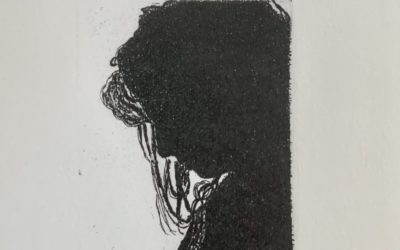
da Monica Guerra | Ott 27, 2020 | antologie
Poesia Onesta, 2020, versante.
A cura di Fabio Maria Serpilli
Da Entro fuori le mura
è l’intercapedine dieci centimetri tiepidi
che pacificano il morso dell’inverno
è un walzer lento tra i versi Šostakovič
e un caldo smisurato all’interno
i vetri s’ingegnano cristalli
– il giorno si fa in gesti –
nell’ora fredda il vuoto qui di fronte,
è la storia che ci tiene vivi, di lato
dieci centimetri di ponte
*
Chateau Duval la strada ribolle
ma la fatica è un guado senza
direzione dove la terra beve
ogni forma in procinto
di cadere si scioglie nell’asfalto
il passo per troppa esitazione
svivere scortica anche me
*
e se l’albero si converte in croce
è la paralisi del giorno
la linfa si spinge tra le pieghe
non il frutto proibito della paura
estirpa i chiodi dalla radice

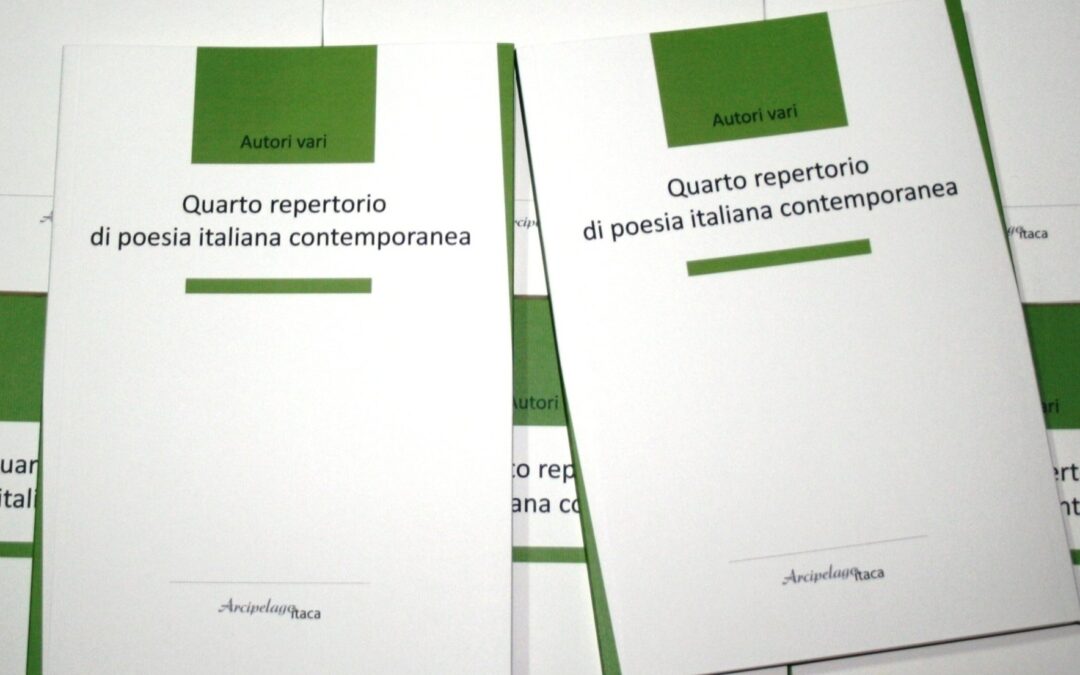
da Monica Guerra | Ott 27, 2020 | antologie
Quarto repertorio di poesia italiana contemporanea
Su SPEZZARE IL PANE di Monica Guerra.
Di Danilo Mandolini
(…) L’essenza dell’amore, dell’essere insieme delle persone (si noti come, curiosamente, il sostantivo “amore” e l’avverbio “insieme” mai compaiano nell’intero arco della raccolta) pare dunque esistere e soprattutto persistere – in qualche modo sedimentandosi a dismisura nel tempo; in un tempo, appunto, che in queste poesie si muove mirabilmente tra passato, presente e futuro in parte celato – nelle minime conseguenze delle altrettanto minime azioni quotidiane che compiamo con i compagni e le compagne delle nostre vite.
È proprio in questi invisibili frangenti che si “edifica” la vita insieme, è da questi attimi che giungono a noi come nascosti che sempre si ricomincia. Perché «ricominciare è essere uomini»; perché «spezzeremo ancora il pane».
SPEZZARE IL PANE
il gesto quotidiano
di spezzare il pane
amarsi è dalle briciole
*
non so quanti metri quadri
il numero esatto delle stanze
non so dove come reinventarmi
vorrei, se posso, ancora un ultimo piano,
le tegole rosse sui tetti degli alberi
ma se chiudo gli occhi ti rivedo
tra trent’anni un supermercato
la tua mano che mi sfila piano
una borsa della spesa
1989
un balzo che fa trent’anni domani o a novembre
una bella storia, che a dirlo ora
rincasando con i figli si capiva
ma io e te neve sulle cime verdi diciottenni
con la radio a palla a squarciagola
dai finestrini come ali
«fottitene dell’orgoglio»
io e te mille voli la medesima valigia
conta pure, ci sono sempre anche dei morti,
un po’ di fumo alle uscite laterali e noi
complici a domandarci ancora baci
un sigaro o se domani

Con testi di:
Daniele Beghè
Monica Guerra
Dimitri Milleri
Ermanno Moretti
Sandro Pecchiari
Alfredo Rienzi
Con note critiche di
Alessio Alessandrini, Mauro Barbetti, Danilo Mandolini, e Renata Morresi
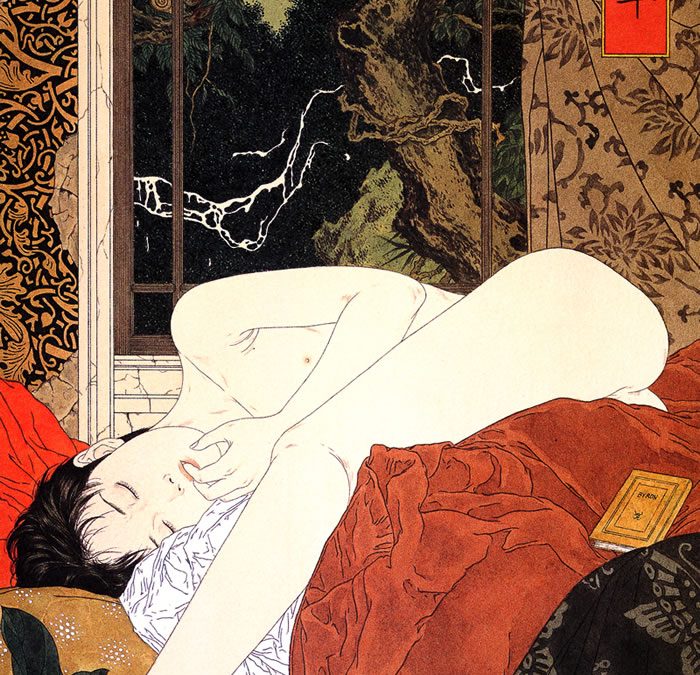
da Monica Guerra | Feb 17, 2016 | antologie
Non voglio essere l’ultimo a mangiarti – antologia di poesie erotiche
Irina liquefatta
danza nella pioggia.
Riflessi
milioni di cani verdi
echi sbavati
di latrati languidi
pozzanghere di mani
nel fiume tra le cosce.
Monica Guerra
Leggi di più










